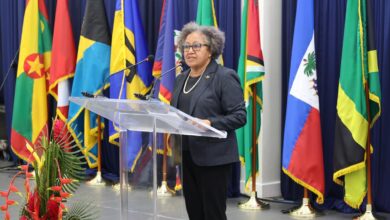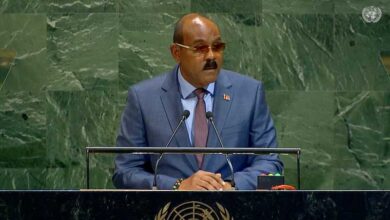The Caribbean Institute for Meteorology and Hydrology (CIMH) on Thursday launched the ‘Weather and Climate Ready Nation’ programme for Barbados and the Eastern Caribbean, which aims to improve early warning and forecasting systems.
The two-year project integrates aspects of the United States programme and will be piloted in Barbados before being implemented in other Eastern Caribbean countries.
It is also expected to allow participating countries to improve planning, policy development and decision-making related to storm surge and coastal inundations, high winds, flash flooding and landslides.
Permanent secretary in the Ministry of Agriculture here, Esworth Reid, called for Caribbean countries to ensure that any new physical development plan makes provisions for the likely negative impact of climate change and extreme weather conditions that may occur as a result.
He said emphasis should be placed on reducing the vulnerability and strengthening the resilience of physical structures that drive and support economic activity, with respect to communication and distribution, including roads, sea and airports.
“A small economy such as Barbados that depends so heavily on tourism can be significantly compromised in one day or so if the island is impacted by a category five hurricane, and our airport, seaport or hotel structures are not built to withstand the impact of such a system, especially if hotels are allowed to continue being built so close to the sea, where sea surges can compromise their integrity.
“The latter can very well happen in a couple years or so due to rises in sea levels, and I am saying this being not a civil engineer, but just observing nature and the taste of developers or even Barbadian home builders for beach front land,” he cautioned.
Reid, who is also the chairman of the Board of Governors of the CIMH, noted that Barbados can learn lessons from recent natural disasters in neighbouring Caribbean countries, including Tropical Storm Erika in 2015 and the 2013 Christmas Eve trough in St Vincent and the Grenadines.
He also called for protection of the agriculture sector to feature prominently in any physical or economic development plan of Caribbean countries addressing the issue of climate change.
“This leads me to say that any physical and or economic development plan for a country in the Caribbean would have fallen short in design if measures to reduce the vulnerability of domestic food production, namely primary agriculture, against extreme climate or weather events are not included in that plan.
“From what I have observed, I do not believe that serious consideration has ever been given to this aspect of agriculture in any country in the Caribbean in any development plan. You may only hear after it happens, for example, of what proportion of a country’s livestock or crop production has been destroyed after extreme weather by way of flooding and when that information is given, it appears clearly that little forethought had been placed in the likelihood of something like that happening when designing national drainage systems or even anyone [is] taking time to train farmers on how to design and install their own systems to protect their produce,” he said.
Reid stressed that it is important that Barbados and other Caribbean countries protect the infrastructural and socio-economic support systems of their economies from the fury of nature, given their vulnerability to severe weather systems.





